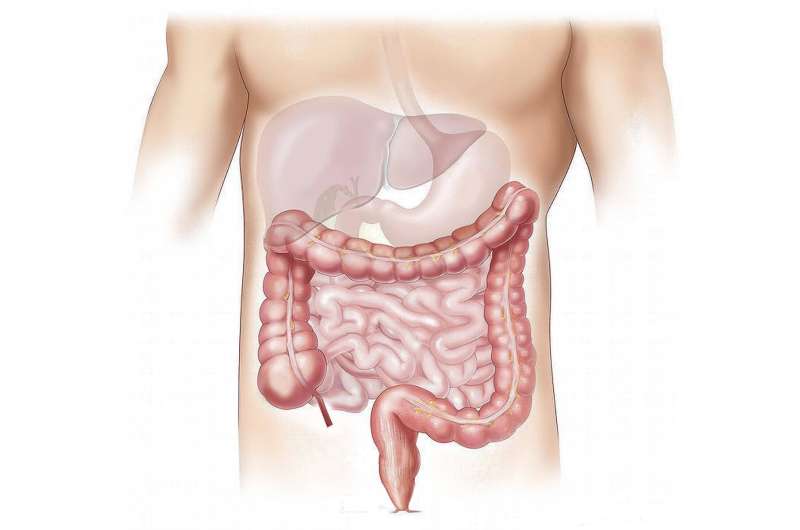This article has been reviewed according to Science X's editorial process and policies. Editors have highlighted the following attributes while ensuring the content's credibility:
fact-checked
trusted source
proofread
Antibiotics use in relation to colorectal cancer risk, survival and postoperative complications

The bacteria in our gut are believed to be involved in cancer of the large bowel. Exposure to antibiotics, which can affect gut bacteria, might do the same, according to a recent thesis from Umeå University.
Using Swedish national registry data from more than 35,000 bowel cancer patients, Ph.D. student Sai San Moon Lu found that use of prescription antibiotics was linked to a higher risk of right-sided colon cancer, the first part of the large bowel. The risk increase was small but was seen at levels as low as one or two typical prescriptions. Colon cancer patients who had taken antibiotics also had a higher risk of surgical site infections, a potentially life-threatening complication of surgery.
"The results for colon cancer risk were expected. Bacterial imbalance, or dysbiosis, is thought to be most important in the first part of the large bowel, and other large studies have reported similar findings. The finding for surgical site infections is new, which makes it especially exciting for me," says Sai San Moon Lu, Department of Diagnostics and Intervention.
Dysbiosis has been linked to worse wound healing and complications after bowel cancer surgery, but the study by Lu and his colleagues is the first to look at antibiotics during the years before surgery.
Taking antibiotics didn't increase the risk of rectal cancer or of surgical site infections after rectal cancer surgery in Sai San Moon Lu's studies. One unexpected finding was a slightly lower risk of rectal cancer in women who had taken antibiotics.
"Another large study had seen the same thing, but we really didn't expect to replicate their result," says Sai San Moon Lu.
"We scientists always say that more research is needed, and that's certainly true here."
Sai San Moon Lu found no clear link between antibiotics taken before diagnosis and the prognosis of patients after diagnosis in either colon or rectal cancer.
"The results in my thesis don't mean that we should stop using antibiotics, but they do suggest that cautious and judicious use of antibiotics could have benefits beyond preventing the spread of antibiotic-resistant bacteria," says Sai San Moon Lu.
More information: Antibiotics use in relation to colorectal cancer risk, survival and postoperative complications. umu.diva-portal.org/smash/record.jsf?pid=diva2%3A1839382&dswid=9058




















